In today’s digital landscape, the demand for headless CMS solutions has grown exponentially, enabling developers and content creators to build and manage content with unparalleled flexibility and scalability. Headless CMS Open source platforms have emerged as powerful tools that offer freedom, customization, and community-driven support. Let’s take a look at the top 16 best Open source headless CMS platforms that have gained popularity for their extensive features.
Table of Contents
Top 16 Best Open Source Headless CMS
Strapi
Strapi is a leading top Open source headless CMS that provides developers with a powerful and customizable platform for building applications. Developed in 100% JavaScript, it offers a developer-first approach, making it ideal for JavaScript developers looking to create performant, customizable, and self-hosted content APIs effortlessly.
The entire codebase is publicly available on GitHub, with an active community of contributors ensuring continuous improvements and support. Strapi excels in providing a flawless design and easy customization, allowing users to tailor both the API and admin panel to their specific needs.
Its highly flexible content management system enables effortless creation and management of content, while the ability to extend functionality through custom plugins makes it a versatile solution for various projects. Strapi supports multiple databases, including SQL-based and NoSQL options, giving users the flexibility to choose the database system that best fits their application.
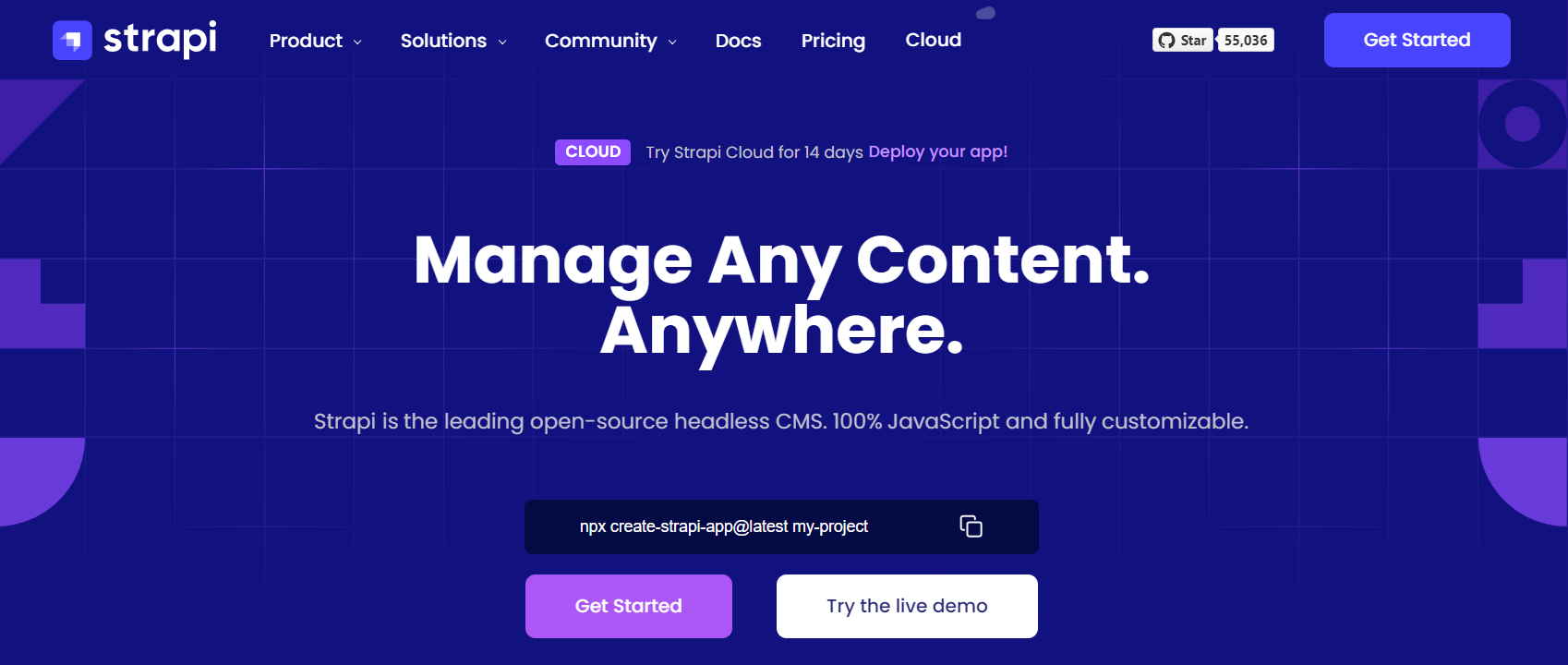
The platform’s support for webhooks enables real-time notifications and integrations with external services, automating processes and enhancing overall functionality. Moreover, Strapi’s API can be utilized by different clients, from popular frameworks like Vue, Angular, and React to IoT devices and mobile applications, providing compatibility through both GraphQL and RESTful APIs.
Strapi offers a free version packed with impressive features, making it accessible to a wide range of users. For those seeking enhanced capabilities and support, premium plans are available
Ghost CMS
Embark on your headless CMS journey with Ghost, a powerful platform that empowers you to create beautiful, independent publications. With an easy setup guide that takes you from the local environment to product development, installing Ghost is a breeze. It provides full support for running self-hosted instances on Ubuntu servers, ensuring a seamless experience.
Ghost offers the flexibility to design your own templates, making it an ideal choice for building new websites and applications. By understanding Ghost’s configuration and architecture, you’ll have all the tools you need to create custom themes efficiently, thanks to its open-source theme starter framework.
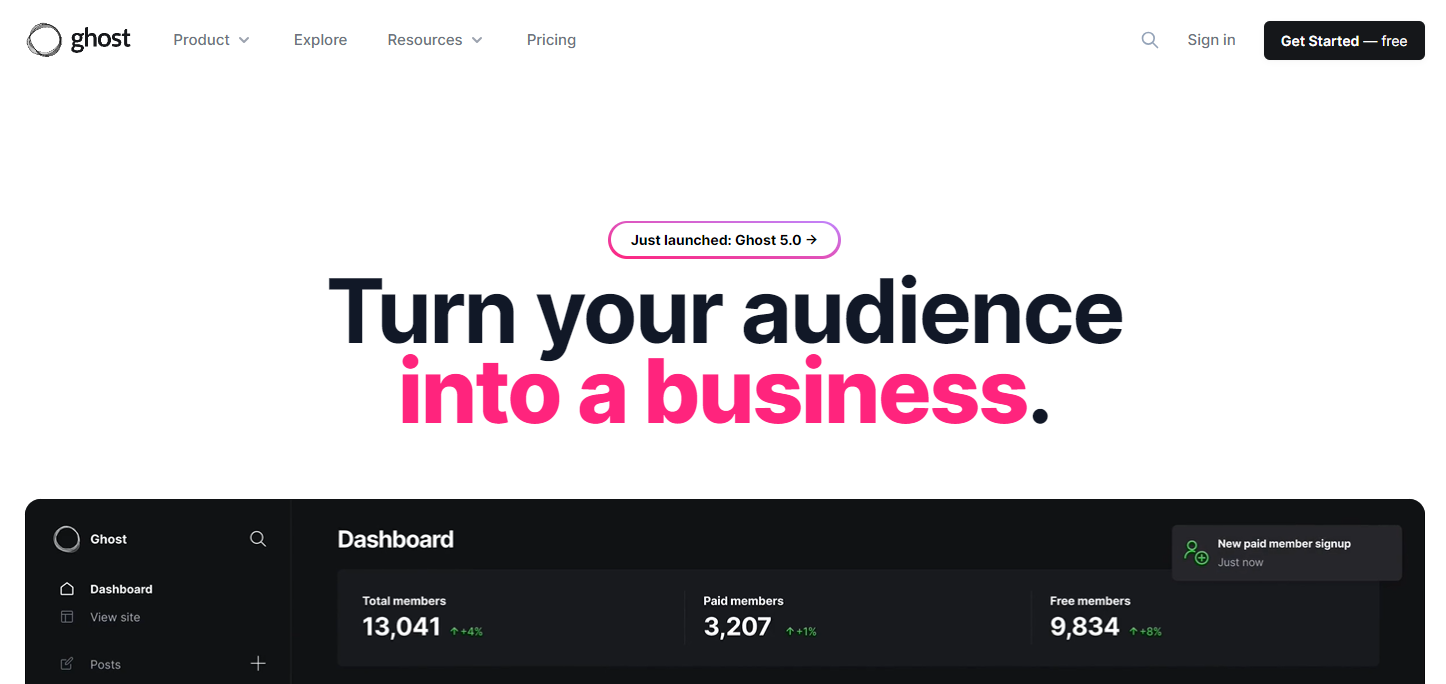
When it comes to SEO, Ghost has you covered with excellent internal SEO options integrated into the CMS. This ensures your content is well-optimized for search engines without adding any unnecessary weight to the system.
Furthermore, Ghost CMS posts natively support structured data, resulting in more attractive search results and better visibility on search engines. Ghost CMS boasts an array of powerful features, including custom branding, easy navigation, and support for custom redirects, making it a highly customizable platform.
Additionally, it offers multi-language support, catering to a diverse audience with ease. With built-in webhooks, you can automate processes and integrate with external services, streamlining your workflow. Ghost is front-end agnostic, meaning you have the freedom to use your preferred front-end framework without constraints. Ghost CMS offers both free and premium plans, allowing you to choose the best headless CMS Open source option for your needs. The premium plans cater to different team sizes
Netlify
Netlify CMS is a powerful and flexible top open source headless CMS that leverages the benefits of the Jamstack architecture. Built as a single-page React application, it seamlessly integrates with various Git platform APIs, allowing for easy content management and versioning alongside your code in the Git repository. This approach enables multichannel publishing and simplifies content updates, making versioning a breeze.
With Netlify CMS, creating flexible and faster web projects becomes a seamless process when combined with a static site generator. Its user-friendly interface and simple workflows provide editors with an intuitive experience for managing content in your Git workflow. The CMS can be used with any static site generator, offering quick and adaptable web development.
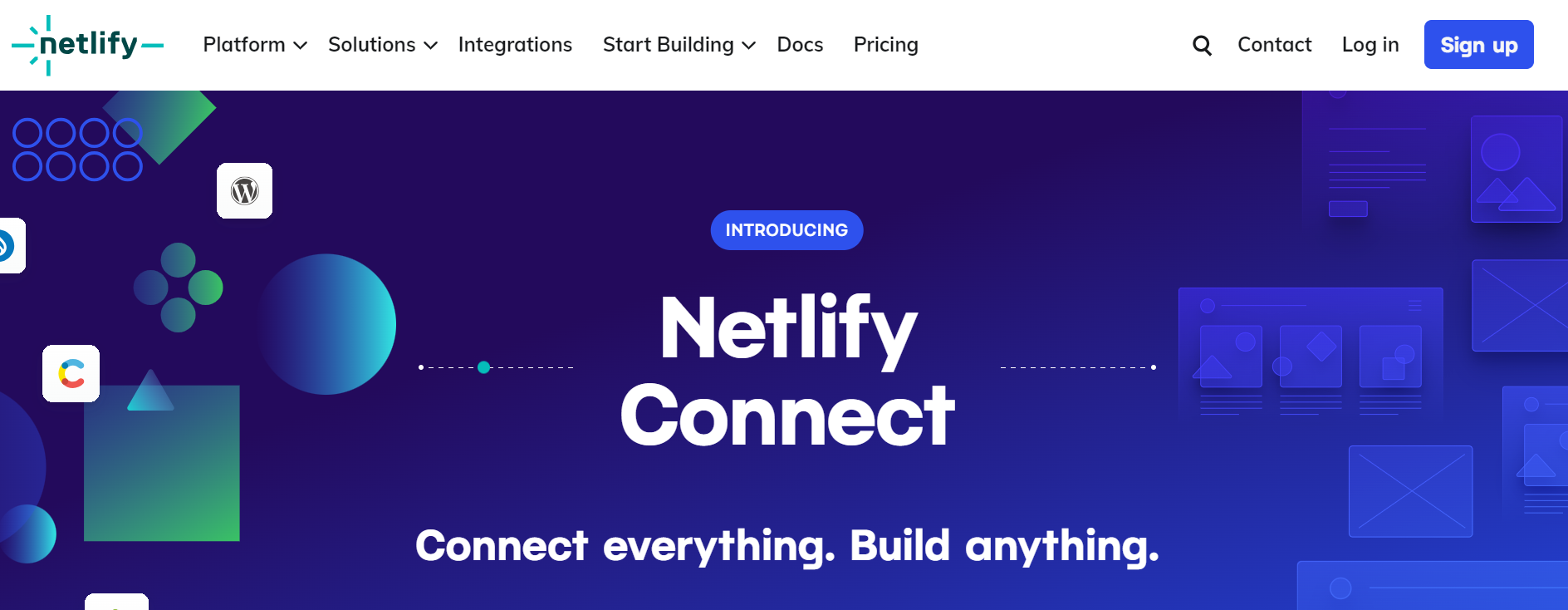
One of the key advantages of Netlify CMS is its ability to create custom-styled previews, UI widgets, and editor plugins. This allows developers to tailor the CMS to their specific needs and integrate various backends to support different Git platform APIs. The platform’s web-based UI ensures fast and efficient content management for editors.
Netlify CMS offers a range of features designed to enhance the content management experience. The editor-friendly user interface simplifies content creation and updates, ensuring a smooth workflow for editors. Its web-based UI guarantees a fast and seamless user experience.
Built on the Jamstack architecture, Netlify CMS takes advantage of static site generation, providing faster performance and increased security. The platform’s flexible content types enable the creation of diverse and dynamic content structures.
As a top open source headless CMS, Netlify CMS is available for free, making it an accessible option for developers and teams on a budget. There are no costs associated with using the core features of Netlify CMS, ensuring that content management can be integrated into projects without additional expenses.
Tina CMS
Tina CMS is an innovative open-source Git-backed headless content management system that facilitates smooth collaboration between developers and content creators. With Tina CMS, developers have the freedom to craft a custom visual editing experience perfectly tailored to their website’s unique requirements. By leveraging the advantages of a Git workflow, all team members gain access to an intuitive interface for hassle-free website updates.
One of the standout features of Tina CMS is its ability to boost productivity and enable context-sensitive adjustments during content updates. With Tina’s integration of ReactJS, content teams can effortlessly create complex pages by adding an editing interface to their React components, streamlining the content creation process. Setting up the Tina CMS project is quick and straightforward thanks to the TinaCMS CLI. Developers can create a Tina starting site using the CLI, with Tina already configured, or integrate it seamlessly into an existing Next.js site.

Tina CMS offers a range of key characteristics that enhance the content management experience for developers and content creators alike. The unified client allows both the front end and back end to utilize the latest features efficiently, promoting seamless collaboration. The data layer is enabled by default, ensuring a streamlined and efficient workflow.
Tina CMS also provides improved read-only token support, enhancing security and access controls for team members. Additionally, it offers a simple and direct method of utilizing the CMS in Continuous Integration (CI) processes, making deployment and development even more efficient. As an open-source CMS, Tina CMS is available for free, making it a cost-effective option for developers and teams. Its accessibility and powerful features enable teams to collaborate effectively without incurring any upfront expenses.
Payload CMS
PayLoad is a cutting-edge headless eCommerce Open source CMS that promises to be the last CMS you’ll ever need. Developed entirely in TypeScript, it stands out as the most extensible and developer-centric CMS in the market.
With a focus on delivering the best developer experience, PayLoad empowers you to build anything you require without encountering any functionality roadblocks. Whether you’re creating websites, SaaS apps, native apps, or any other type of application, PayLoad is the go-to solution for seamless content management.
One of PayLoad’s strengths lies in powering complex and fully featured web applications of all shapes and sizes. From back-office CMS for eCommerce sites to video game backends and SaaS applications, PayLoad excels in providing the perfect content management solution. Whether you’re building an enterprise-level website or a personal portfolio, PayLoad’s headless CMS capabilities cater to all your requirements.
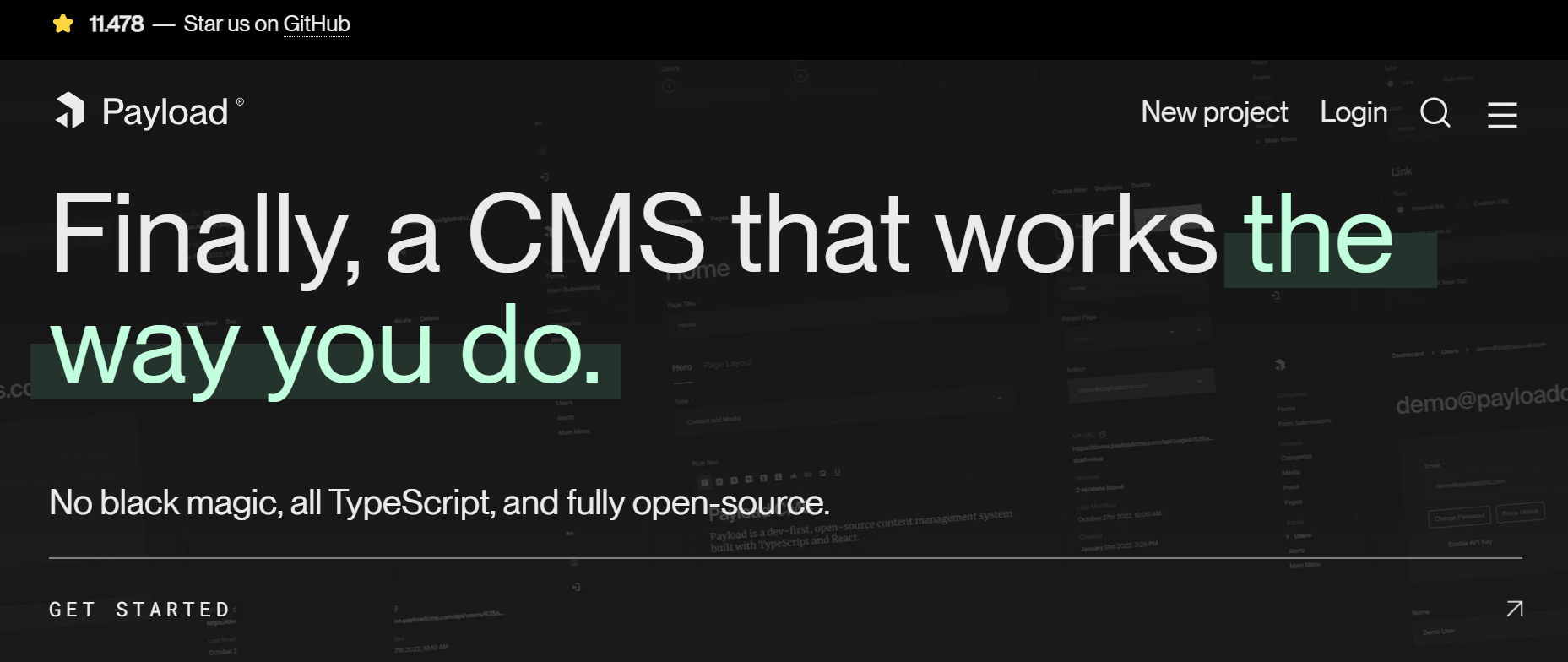
PayLoad CMS offers a range of powerful features designed to enhance content management and streamline the editorial process. The content blocks feature enables flexible content creation, allowing editors to assemble content with ease. Multi-language support ensures that your content reaches a global audience, breaking language barriers effectively.
With its rich text editor, PayLoad makes content creation a breeze, empowering editors to create engaging and visually appealing content. Document management capabilities further enhance organization and accessibility. The approval process control feature allows you to implement a seamless workflow, ensuring that content is reviewed and published efficiently.
Version control is another standout feature of PayLoad, offering a powerful system for managing content revisions. This ensures that you can easily track changes and revert to previous versions as needed, providing an unparalleled CMS experience for editors.
As an open source headless CMS, PayLoad is available for free, making it accessible to developers and teams looking for a cost-effective content management solution. Its feature-rich and developer-first approach, combined with a robust versioning system, makes it an attractive option for projects of all sizes.
Keystonejs
KeystoneJS is a robust and scalable headless eCommerce Open source CMS platform that enables developers to build faster and more efficient content applications. With KeystoneJS, describing your schema is all it takes to unlock an array of features, including an excellent Management UI and a robust GraphQL API for seamless data and content management.
Enjoy the benefits of elegant APIs without sacrificing the flexibility of a bespoke backend, making it an ideal solution for various projects. The platform offers a wide range of essential features, such as multiple field types, session management, custom schema, access control, database migrations, powerful filters, and support for relational data.
With event hooks and automated CRUD, developers can streamline development processes and enhance productivity. Keystone’s admin UI is intuitive and flexible, ensuring it understands your unique needs and enables you to shape your content accordingly. Furthermore, the platform supports next-generation rich text WYSIWYG and BYO custom React components, offering versatility and customization options.
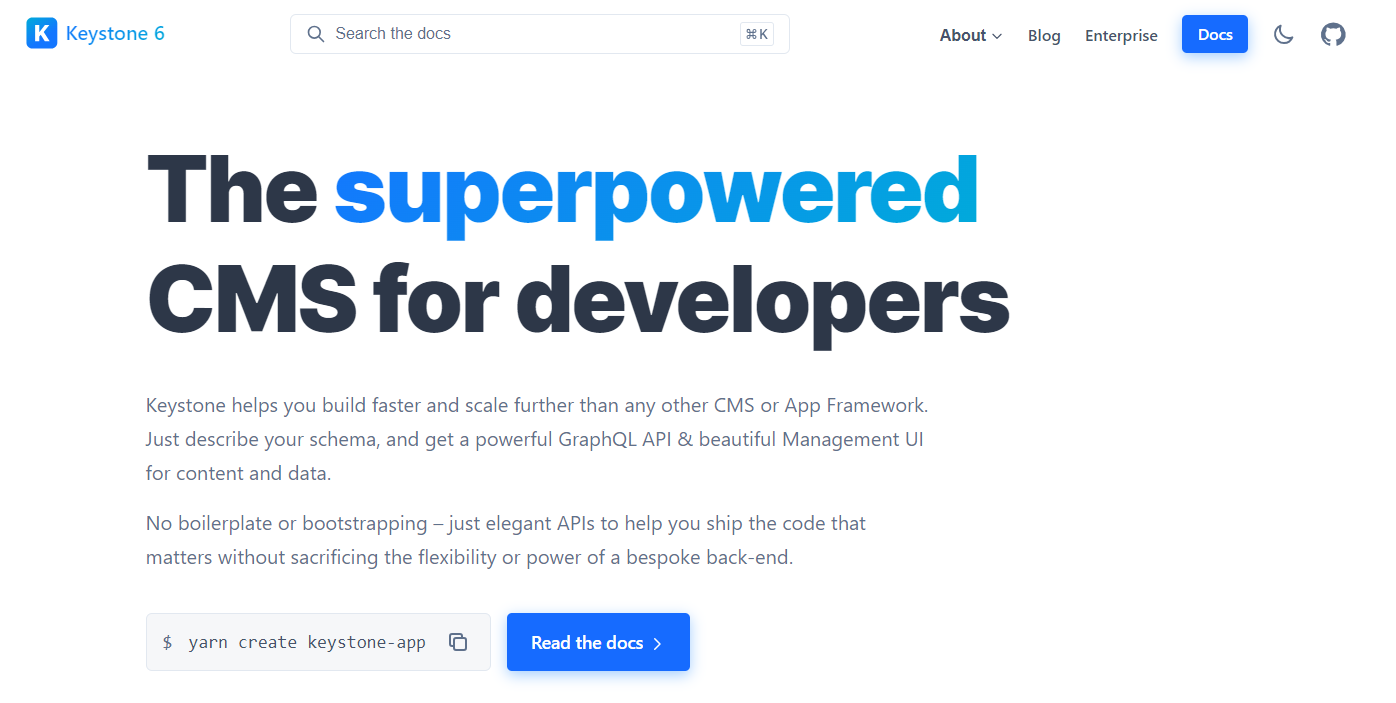
KeystoneJS is highly versatile in terms of deployment, allowing you to host it on popular platforms like Heroku, Render, Digital Ocean, or even your custom infrastructure. It seamlessly fits into git-based building workflows and provides automation and CI tooling for enhanced development efficiency.
KeystoneJS offers a comprehensive set of features, including support for all field types, ensuring content creation flexibility. Session management and access control are built-in, providing a secure environment for your data. Custom schema and database migrations allow you to tailor the data structure to your specific requirements. KeystoneJS also offers TypeScript support, enhancing code quality and development speed.
Powerful filters and support for relational data empower developers to perform advanced queries and manage complex data structures with ease. With over 6.7k stars on GitHub, KeystoneJS has gained popularity and trust within the developer community. KeystoneJS is an open source headless CMS, making it freely available for developers and teams looking to harness its capabilities. There are no upfront costs associated with using KeystoneJS, ensuring accessibility to all types of projects and budgets.
Webinyjs
WebinyJS is a headless CMS Open source that provides a flexible, scalable, and agile solution for content management needs. With a focus on catering to diverse business requirements, WebinyJS offers valuable tools for various teams within your organization, from development to marketing. Built on GraphQL with powerful modeling features, this serverless CMS allows you to build landing pages quickly and efficiently.
One of the standout features of WebinyJS is its powerful GraphQL API and fine-grain permission control, providing developers with robust content management capabilities. The multi-tenancy support allows you to manage content in multiple languages and across various websites seamlessly.
WebinyJS comes with an application framework that equips you with everything necessary to build, architect, and deploy serverless applications and an omnichannel content hub. With filter operations and query search, the platform ensures fast and efficient performance. The API empowers you to make real-time changes to content, providing flexibility and control.
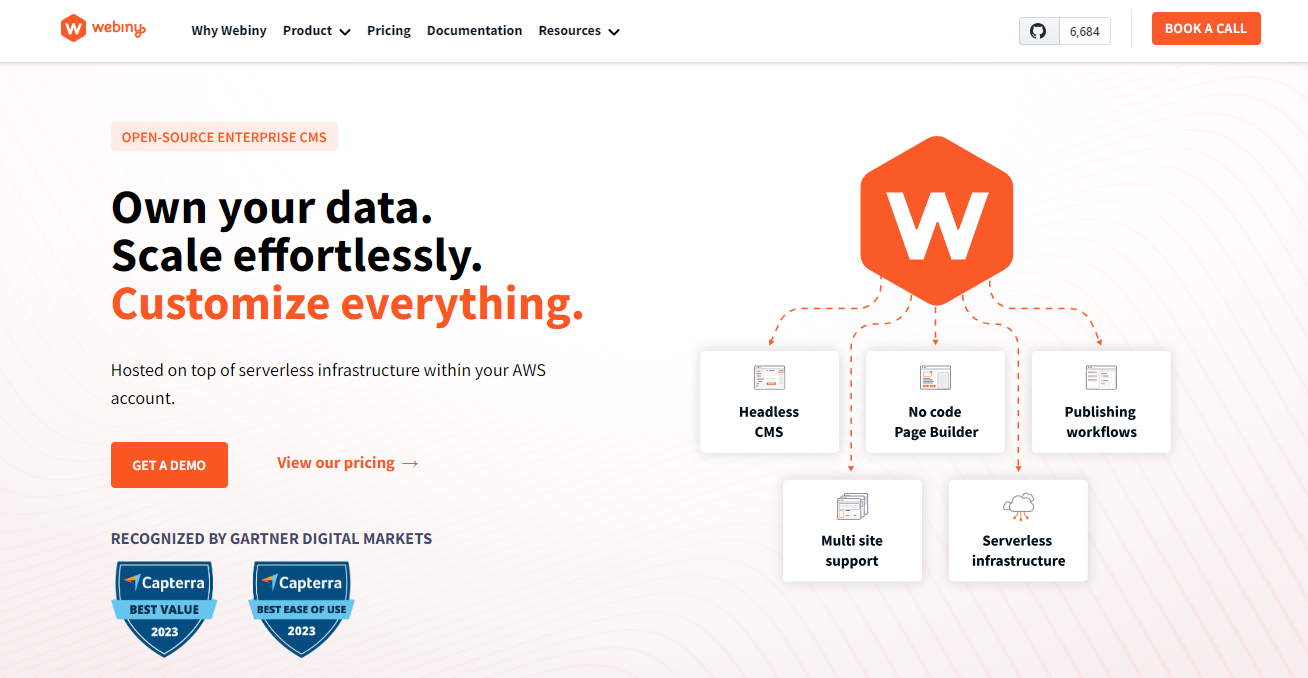
WebinyJS offers a range of features that enhance content management and development efficiency. As a headless CMS, it provides the flexibility to use your preferred front-end technology to present content. The no-code page builder simplifies content creation, making it accessible to non-technical team members.
Publishing workflows enable structured content release processes, ensuring a smooth editorial experience. The multi-site support allows you to manage content across different websites efficiently. WebinyJS’s serverless infrastructure ensures scalability and cost-effectiveness, allowing you to handle varying traffic loads without overspending on resources.
WebinyJS is available for free, providing access to its core features and functionalities. For those requiring enterprise-level features and services, WebinyJS offers premium plans. With the premium plan, you gain access to advanced features like OKTA and Active Directory integration, SLA support, infinite customization capabilities, and consultancy services.
Cockpit
Cockpit CMS is a straightforward and efficient framework designed to manage complex and organized information with ease. This open source headless CMS offers unparalleled flexibility and minimal limitations, enabling you to control your content adaptable.
Supporting a variety of devices on a single platform, Cockpit CMS simplifies content management and ensures a hassle-free installation process, allowing you to start your project promptly without any difficulties.
With Cockpit CMS, organizing and arranging website content becomes seamless. Its user-friendly interface simplifies every step of the process, from installation to content management. The platform’s data listing feature enables a quick and efficient content organization, saving valuable time and expediting procedures.
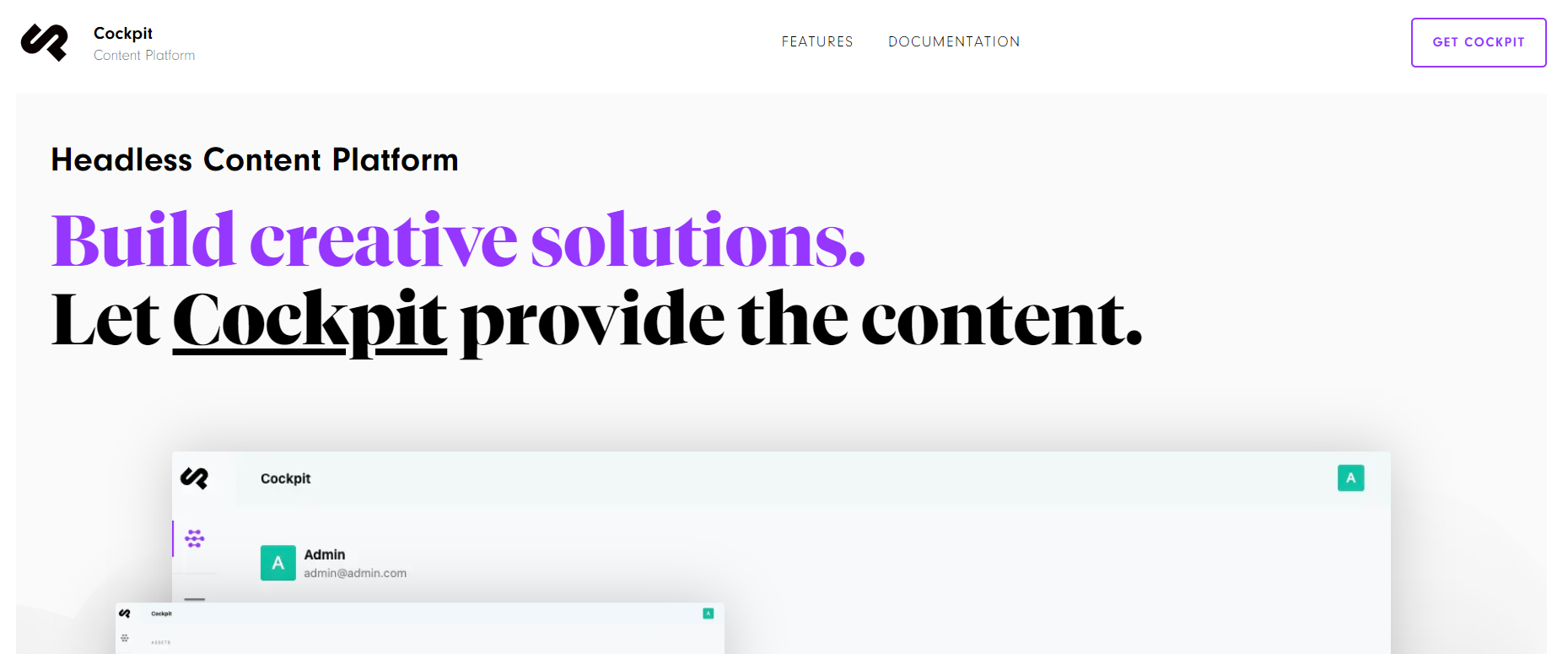
Cockpit CMS boasts several key features that enhance content management and streamline website development. Its flexible structured content models allow you to create and manage content with ease, ensuring a dynamic and adaptable approach. The assets manager feature simplifies the organization and management of media files, optimizing your content workflow.
Cockpit CMS also offers routes, SEO, and menus, allowing you to efficiently manage your website’s navigation and search engine optimization. The simple content migration feature enables smooth migration from other CMS platforms, facilitating a seamless transition.
Additionally, Cockpit CMS supports webhooks, empowering you to integrate external services and automate various processes. The layouts feature allows for easy content structure design, ensuring a visually appealing and well-organized website.
Cockpit CMS is available for free, making it accessible to developers and teams looking for an open-source solution for content management. For those seeking additional features and support, Cockpit CMS offers two premium plans. The Pro Plan, which is priced at $250 per project, provides enhanced features and capabilities for individual projects. The Enterprise Plan offers a negotiable pricing structure tailored to specific project needs, providing personalized support and advanced features.
SanityIO
SanityIO provides a powerful open-source CMS called Sanity, built with React.js, that offers free-form customization and rapid configuration through Sanity Studio. With the headless CMS Open source of Sanity, you can create your own workflows and manage content the way you want. Its flexible plugins and toolkits enable easy customization and quick content management.
Sanity Studio is a single-page application that allows you to install or build plugins independently. You can describe content validations, UI structures, and content models in JavaScript and see the changes directly in the next window. This seamless editing environment provides a smooth content management experience.
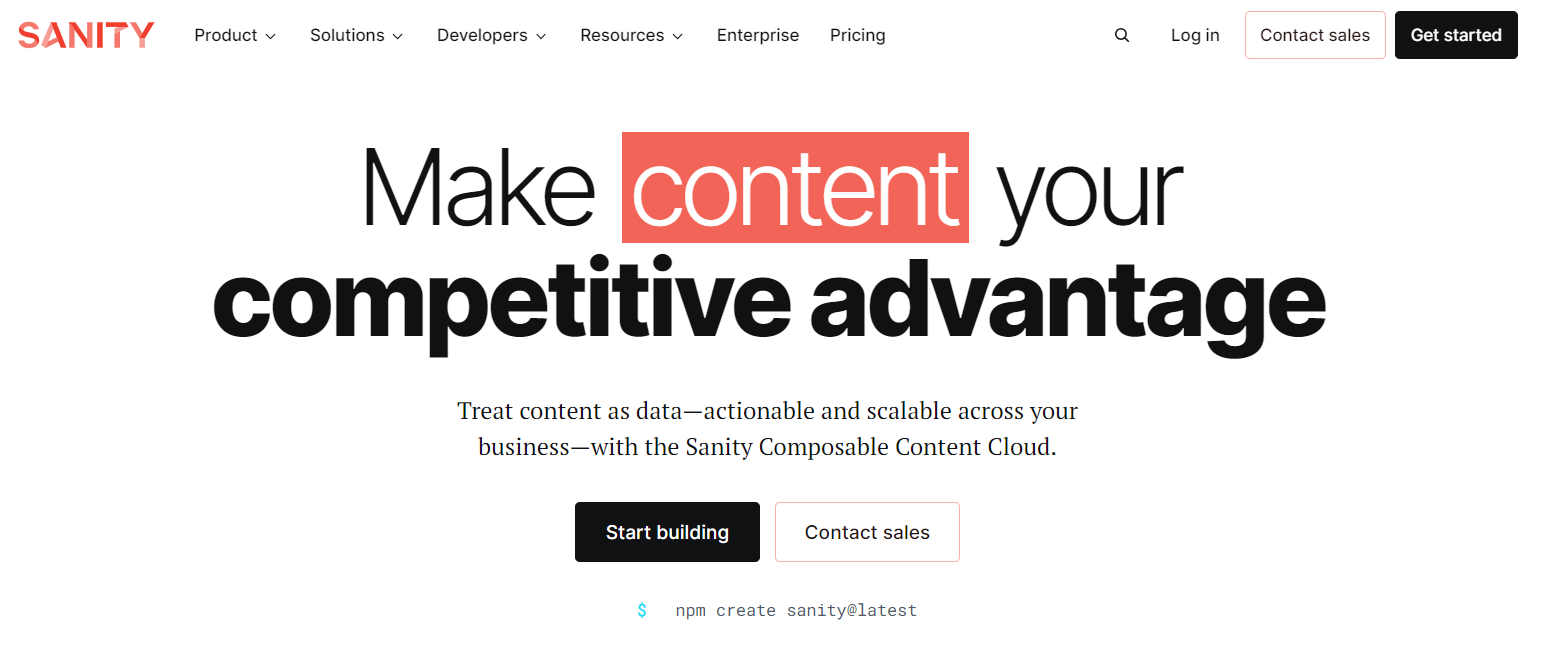
Sanity boasts a range of features that make content management efficient and flexible. Its real-time database ensures that changes are reflected instantly, providing a real-time editing experience. The platform offers best-in-class tooling, streamlining the development and content management processes. Structured content allows you to organize and manage your content seamlessly.
With document revisions, you can track changes and roll back to previous versions if needed. The image pipeline feature ensures efficient handling and processing of images, making it easier to manage media assets. While Sanity offers an open-source version for free, it also provides three premium plans to cater to different project needs, ranging from $99 per project per month.
BuilderIO/builder
Builder.io is a versatile and powerful drag-and-drop visual editor and headless CMS that seamlessly integrates with your existing website stack. Its intuitive visual editor allows you to effortlessly drag and drop components, making it one of the most capable and user-friendly editors available.
With Builder.io, managing and publishing content becomes a breeze, as you can easily integrate it with any website or app. Builder.io offers a wide array of features to enhance content management and streamline development. Symbol, As & State enable you to create reusable components, streamlining content creation and maintenance. Custom data fetching empowers you to integrate external data sources, ensuring dynamic and up-to-date content for your users.
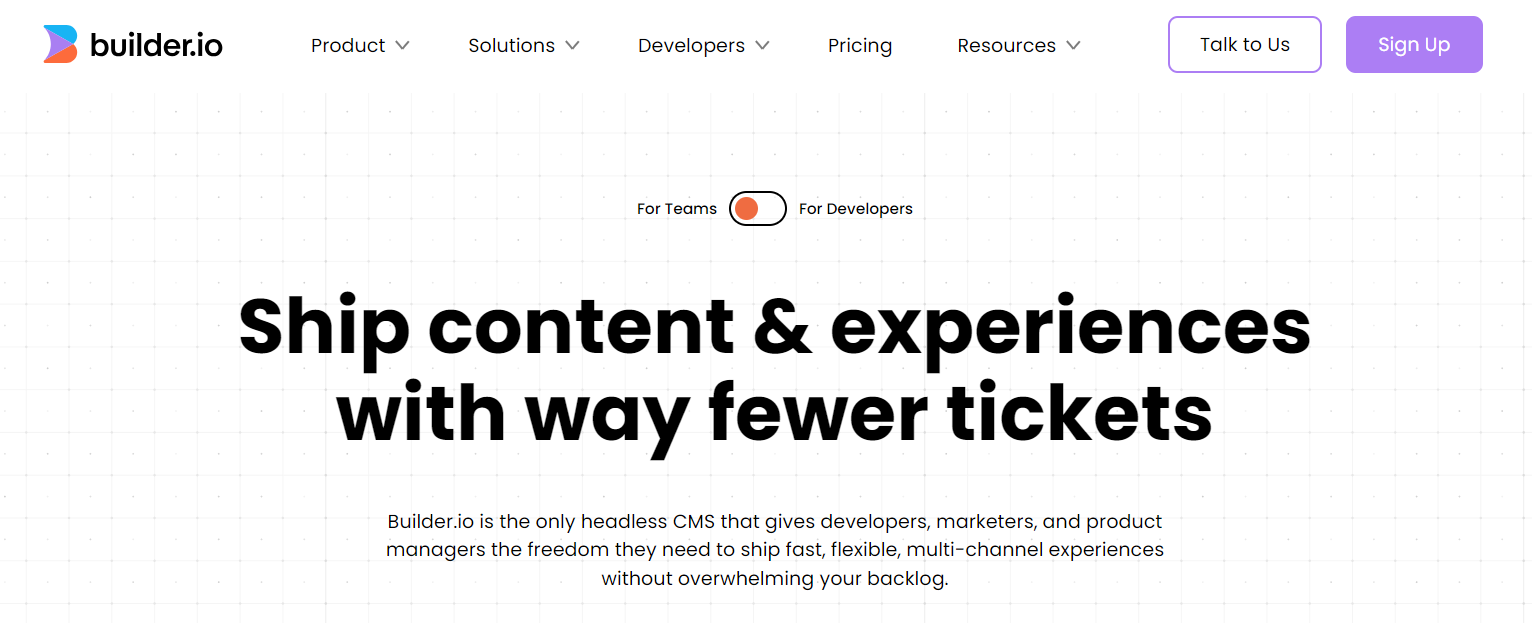
The Content API enables seamless integration with any website or application, providing a flexible and efficient content management solution. Webhooks allow you to automate processes and connect with external services effortlessly. Targeting and scheduling content offer personalized content delivery and precise control over content publishing. Additionally, Builder.io can be extended with plugins, allowing you to customize and tailor the CMS according to your specific requirements. Builder.io offers both free and premium plans to cater to various needs and usage levels.
- The Free Plan grants access to the visual editor and some basic features.
- The Basic Plan is priced at $90 per month, this plan includes 100,000 monthly builder page views, making it suitable for small businesses.
- At $404 per month, the Growth Plan offers 500,000 monthly builder page views and is designed for medium-sized businesses.
- Finally, the Enterprise Plan offers custom pricing and is tailored for large businesses with 1 million or more monthly builder page views.
Apostrophe
Apostrophe is a powerful open-source website builder that caters to a wide range of industries, including SaaS companies, enterprises, higher education, and digital agencies, among others. It offers a modern tech stack, enabling users to create and customize websites with ease through a no-code website factory.
Empowering editors with a drag-and-drop editor, Apostrophe allows real-time changes to be made effortlessly. The platform also provides easy-to-use visual design tools for dynamic styling without compromising brand guidelines, accelerating market speed by up to 10x.
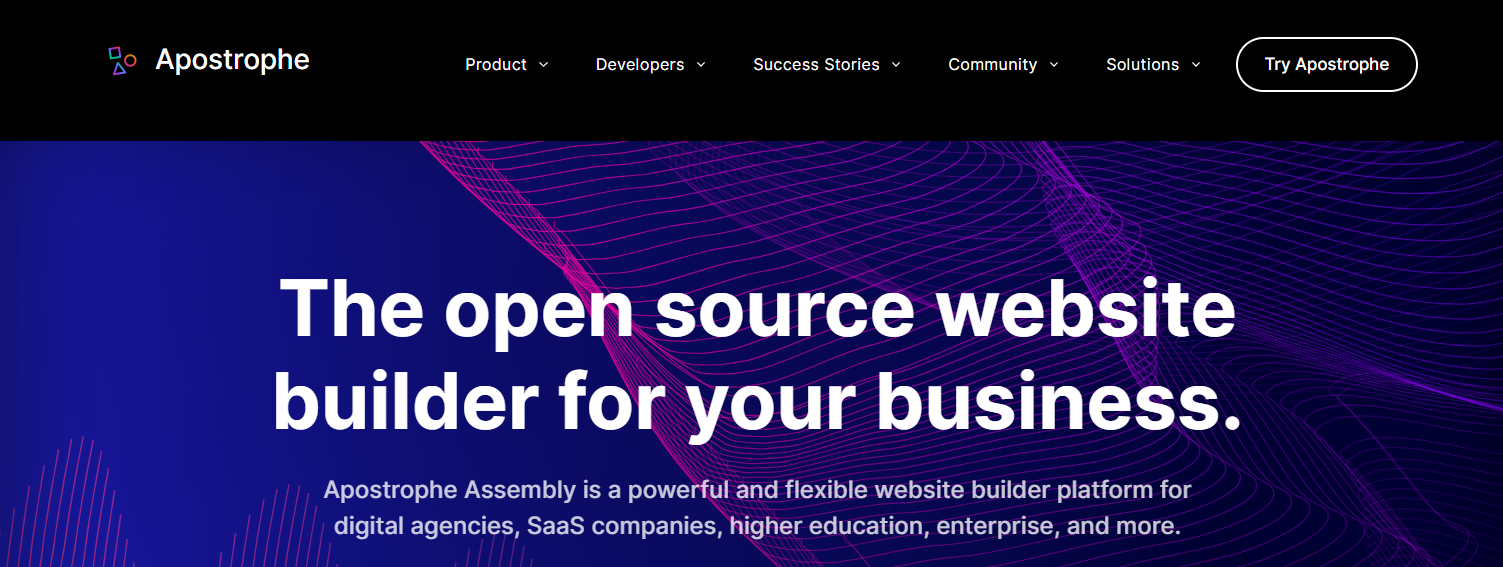
With its flexible and native modules content APIs, Apostrophe seamlessly integrates with various technologies, including Express, MongoDB, npm, Vue.js, and Node.js. A single dashboard provides access to all operations, ensuring a smooth and efficient content management experience.
Additionally, Apostrophe can integrate with Jamstack, enabling the creation of robust custom solutions. Apostrophe offers a plethora of features to enhance website building and content management. The drag-and-drop editor enables real-time editing, allowing changes to be made directly on the website.
Apostrophe’s flexible and native modules content APIs facilitate seamless integration with various technologies, making it highly adaptable. The platform’s user-friendly interface and no-code website factory ensure quick and hassle-free website deployment. Apostrophe’s modern tech stack and modular design allow for scalability, making it suitable for projects of all sizes.
Directus
Directus offers an exceptional open data platform that instantly transforms SQL databases into beautiful no-code applications and APIs. Specially designed for developers, it empowers projects with modern solutions and provides complete control over databases without the need to migrate to proprietary data models.
Built entirely with JavaScript, Directus boasts a modular codebase and leverages the power of Vue.js 3 and Node.js, ensuring ultra-fast performance and straightforward extensibility. With Directus, developers can manage content for various digital experiences, including applications, kiosks, digital signage, websites, and more.
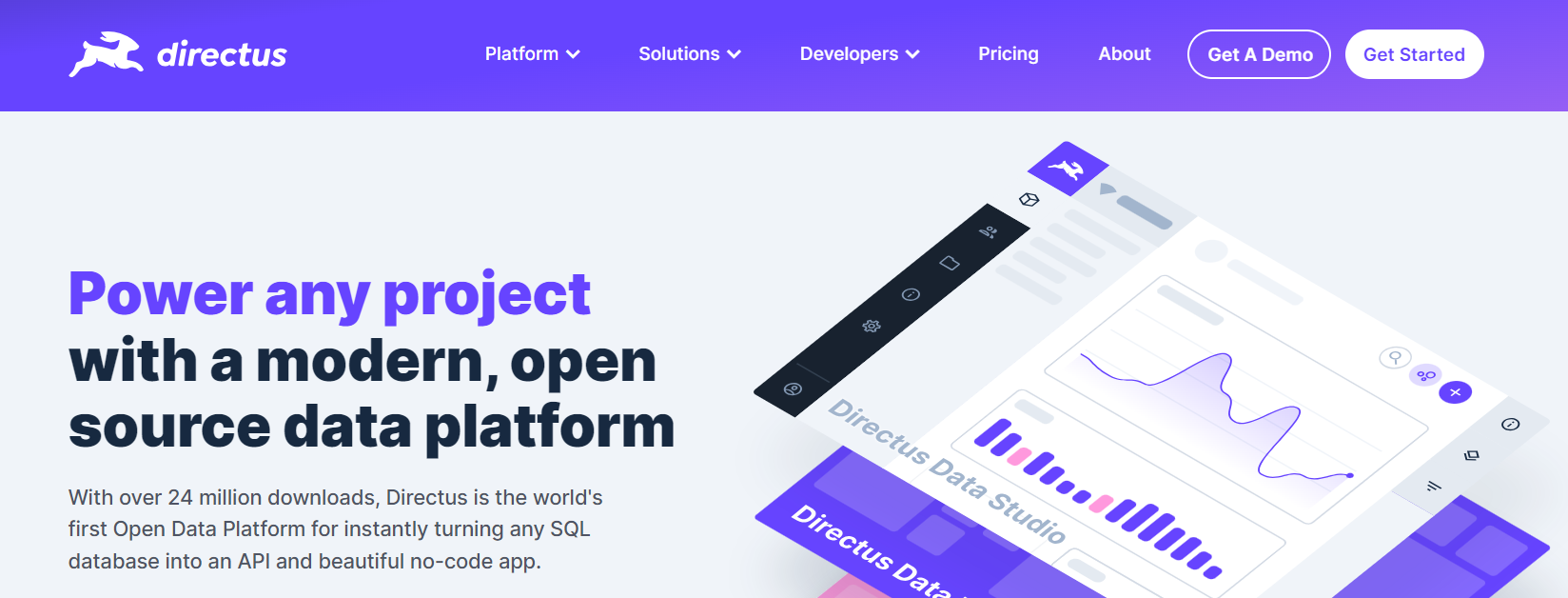
Directus offers a range of powerful features, making it a flexible and dynamic platform for data management and application development. Its self-service cloud dashboard allows users to start creating projects effortlessly.
The platform’s dynamic GraphQL and REST API, based on introspection from the database schema, provide seamless integration and data access. Directus enables developers to work with their existing or new database directly, eliminating the need for complex data migrations. It empowers users to build software-as-a-service solutions, perform data management, and conduct analytics with ease.
Directus provides a straightforward pricing model, offering a single plan at $25 per month, which comes with impeccable benefits. This pricing ensures accessibility to the platform’s full range of features and capabilities for all users.
Squidex
Squidex is a powerful content management platform that allows users to manage content in a modern and centralized way, eliminating the need for other systems. With structured and seamless integrations to other platforms, Squidex provides a single place for efficient content management.
One of Squidex’s standout features is its robust versioning system, enabling users to track and compare different versions of content. This versioning system also allows for easy rollback to previous versions, providing flexibility and control over content changes.
Additionally, Squidex seamlessly integrates with other systems, ensuring that content reacts dynamically to updates. Users can post blogs to Medium and create tweets with ease.
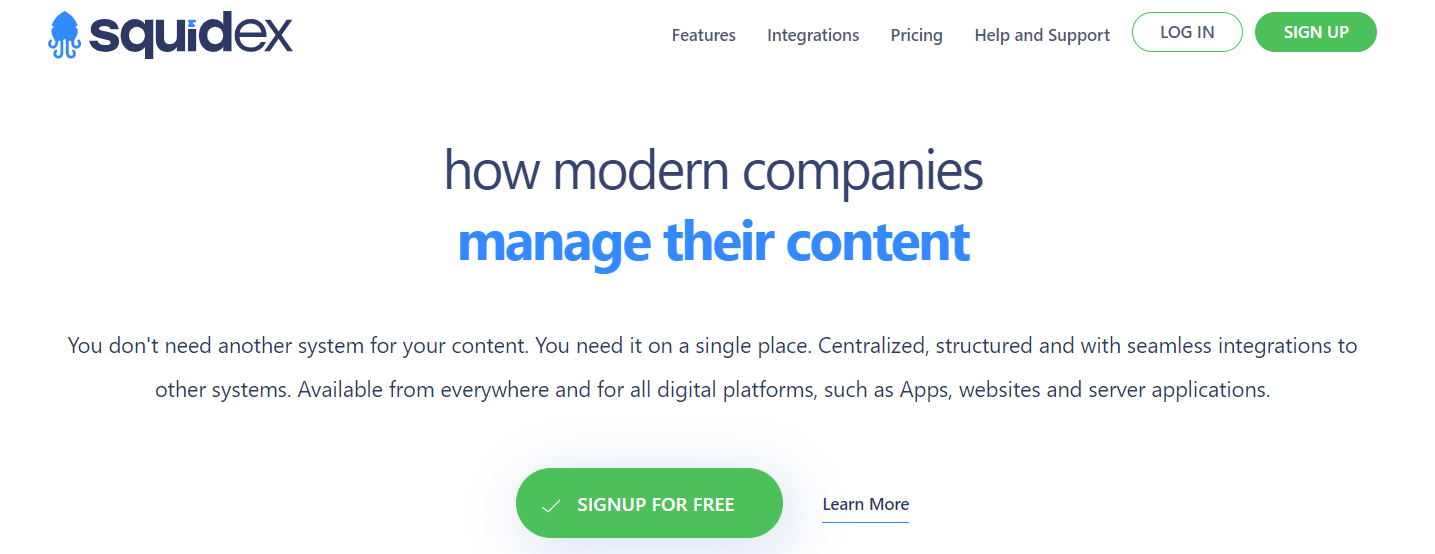
Squidex simplifies content management further by offering a compelling workflow system, eliminating complicated rules for reviewing and publishing content. Developers will appreciate the open-source nature of Squidex, which comes with a best-in-class codebase.
The platform is easy to extend, secure, accessible, and simple to maintain, making it an excellent choice for high-standard enterprises. Squidex boasts a range of features that streamline content management and enhance workflow efficiency.
The platform offers tiered pricing plans to cater to different usage levels and business needs:
- The Starter plan, which is free, includes 20,000 API calls per month, 2 GB traffic per month, 500 MB storage, and allows for 2 contributors.
- The Basic plan costs €19 per month, offers 100,000 API calls per month, 20 GB traffic per month, 5 GB storage, and supports up to 10 contributors.
- At €49 per month, the Professional plan provides 500,000 API calls per month, 50 GB traffic per month, 25 GB storage, and accommodates up to 20 contributors.
- The highest plan costs €99 per month, includes 1,500,000 API calls per month, 100 GB traffic per month, 100 GB storage, and supports up to 50 contributors.
Plone
Plone is an exceptional open-source enterprise CMS that offers a wide array of features, making it a powerful choice for businesses. Its features include responsive theming, built-in multilingual support, and various web content types, providing a flexible and dynamic content management solution.
Plone stands out among other headless CMS platforms due to its remarkable customizability and functionality right out of the box. It excels in industrial security, granular permissions, accessibility, scalability, flexibility, and comprehensive documentation, making it a preferred option for businesses seeking a robust and secure CMS.
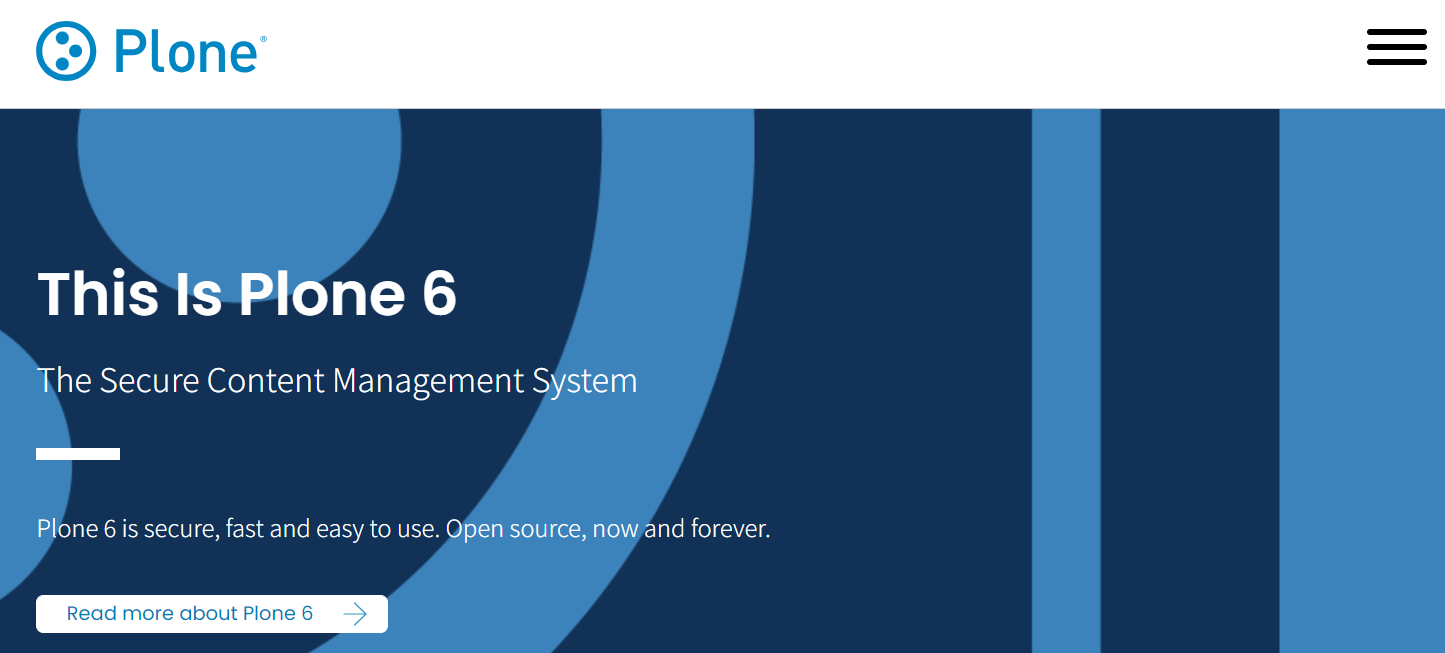
Combining advanced features and security with user-friendly frontend web technologies, Plone incorporates Dexterity content types and Diazo theming, along with Python 3. Its REST API enables it to function as a headless CMS, supporting various JavaScript frontends.
Plone encourages exploration through access to different websites built on its platform, showcasing its versatility and integrations. Self-guided learning resources are available, enabling users to learn and adapt quickly. Additionally, Plone’s active community fosters discussions and communication among users and developers, providing a supportive environment for growth and collaboration.
Regarding cost, Plone will remain free for both clients and developers. The Foundation is committed to maintaining an open-source license for Plone, ensuring that it remains accessible to all users without any future cost implications. While a non-GPL-licensed version could potentially be offered in the future, the current Plone platform will always be under an open-source license, guaranteeing its continued availability and affordability.
Flextype
Flextype is a content management system that offers unparalleled flexibility, speed, and productivity for building and managing content effectively. Its built-in smart cache and elegant architecture make it known as an ultra-fast CMS, ensuring optimal performance for your projects.
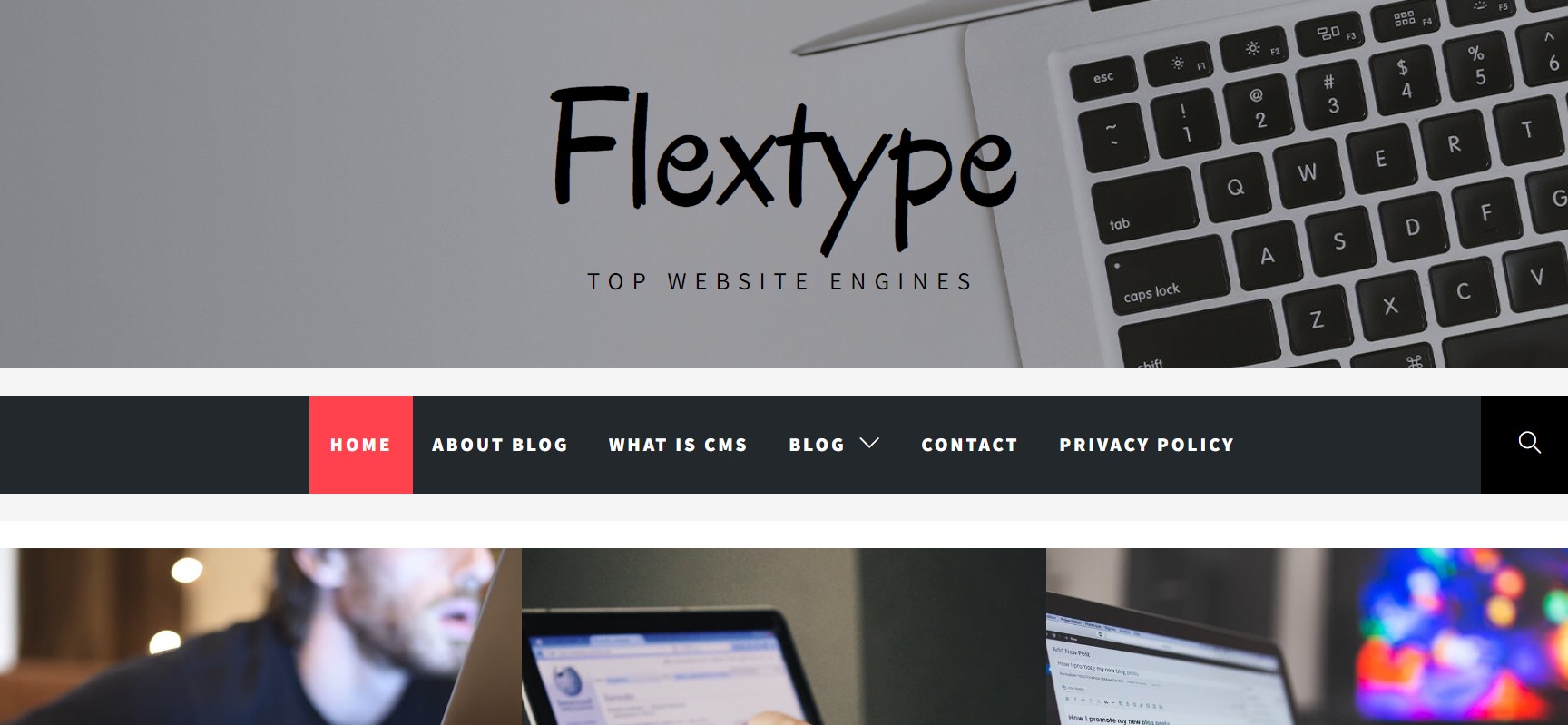
With a strong focus on simplicity and flexibility, Flextype delivers a simple yet powerful API that allows for seamless content management. Its stunning control panel enables users to utilize any content editor of their choice for writing content. Additionally, Flextype provides complete programmatic control over the CMS through its REST API and compact JSON payloads, giving developers the flexibility they need.
Flextype’s flat-file nature allows for defining unlimited fields or dynamic content, while version control via Git or other systems ensures efficient management of content versions. The platform is suitable for various projects, including native applications, websites, kiosks, game data, SaaS platforms, wearables, eCommerce, and more.
As an open-source platform, Flextype provides an accessible and cost-effective solution for businesses to build and grow their projects with ease. Experience the flexibility, speed, and productivity that Flextype offers to streamline content management and accelerate your business growth.
Publii
Publii is a desktop application that offers a free and open-source solution for website management. Unlike traditional CMS platforms that run on website servers, Publii operates directly on your computer, providing offline access to work on your website without internet connectivity. This feature allows you to make changes and updates to your website even when you are not online. Simply upload the changes to your server once you have internet access, and the changes will be saved.
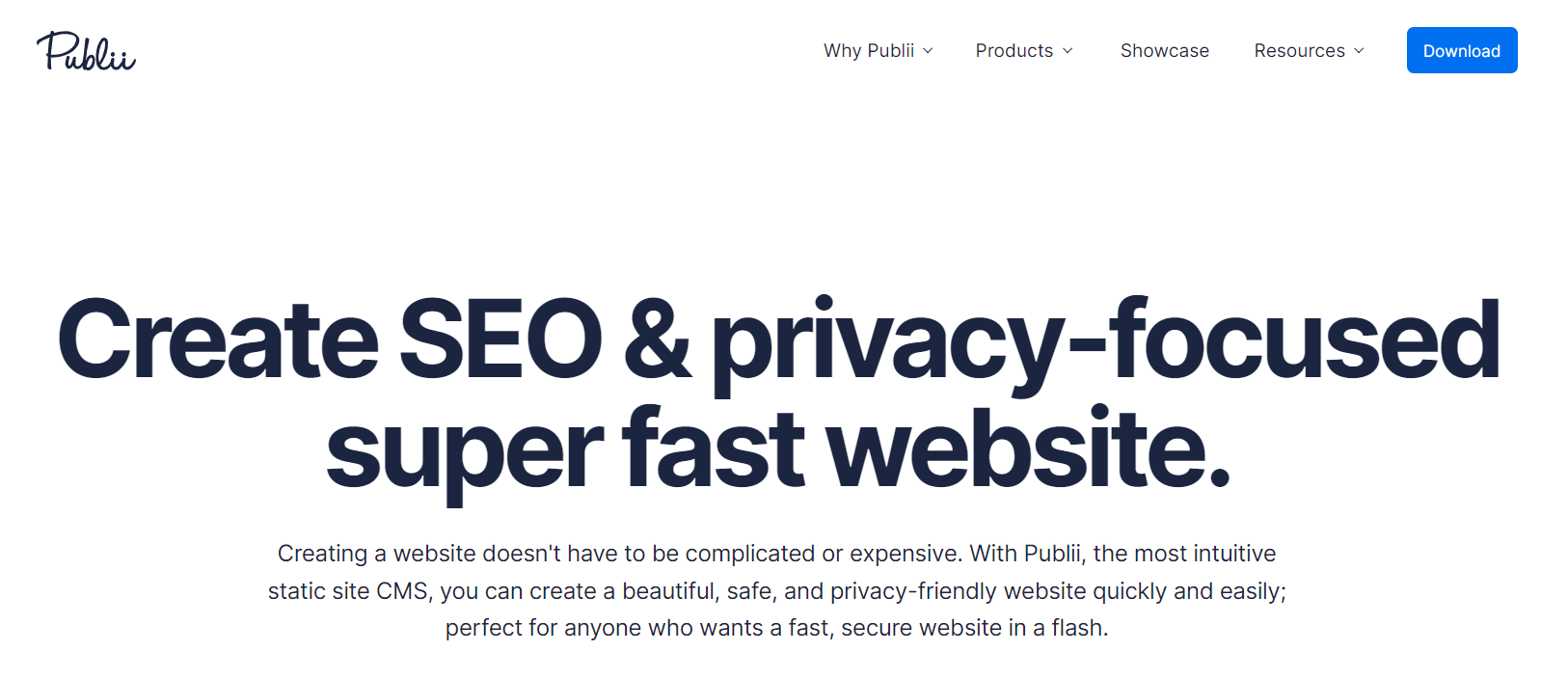
Publii offers various upload options, including HTTP/HTTPS servers, Amazon S3, GitHub Pages, Netlify, SFTP, and Google Cloud, providing flexibility in deploying your website. This ensures that your website remains accessible and up-to-date regardless of the hosting platform you choose.
With Publii, you can create a personal blog, portfolio, or corporate website effortlessly. The application allows you to manage an unlimited number of sites from the same app, enabling instant switching between projects. Moreover, Publii eliminates the need for databases or passwords, simplifying the website management process.
Criteria for Evaluating Open Source Headless CMS
Ease of Use and User Interface
Ease of Use and User Interface are critical criteria for evaluating open source headless CMS platforms. A user-friendly interface and intuitive design are essential to ensure that content creators and editors can easily navigate the system and perform tasks efficiently. A well-designed user interface simplifies content management, making it accessible even to non-technical users, reducing the learning curve, and increasing productivity.
Flexibility and Customizability
A good open source headless CMS should offer flexibility and customizability to cater to diverse project requirements. It should allow developers to easily adapt the system to meet specific needs, whether it’s creating custom content types, integrating with other systems, or implementing unique workflows. A flexible CMS ensures that it can be tailored to suit different use cases and industry-specific demands.
API and Integration Capabilities
The CMS’s API and integration capabilities are crucial factors for evaluating its compatibility with other systems and applications. A robust API allows developers to connect the CMS with various front-end technologies, mobile apps, and third-party services seamlessly. The CMS should also support popular standards like GraphQL and RESTful APIs to facilitate efficient data retrieval and manipulation.
Performance and Scalability
The performance and scalability of an open source headless CMS are vital, especially for large-scale and high-traffic projects. The CMS should be able to handle increasing data volumes and concurrent user requests without compromising response times. Additionally, caching mechanisms and optimized database queries contribute to improved performance and scalability.
Security and Permissions
Data security is a critical consideration for any CMS, particularly when dealing with sensitive content and user information. The CMS should provide robust security features, such as role-based access control, encrypted data storage, and protection against common vulnerabilities. It should also support granular permissions, allowing administrators to define specific access levels for different user roles.
Active Community and Support
A thriving community is indicative of a healthy and well-maintained open-source project. An active community provides ongoing support, regular updates, bug fixes, and new feature development. Access to documentation, forums, and community resources is essential for developers to seek help, share knowledge, and contribute to the CMS’s improvement.
Documentation and Learning Resources
Comprehensive documentation and learning resources are crucial for developers to understand the CMS’s features, capabilities, and best practices. Clear and detailed documentation makes it easier for users to implement and extend the CMS effectively, ensuring successful adoption and usage.
Licensing and Costs
Understanding the licensing terms of the Open source headless CMS is essential to ensure compliance and avoid legal issues. Some CMS platforms may have additional costs for premium features, cloud hosting, or commercial support. Evaluating the total cost of ownership, including any potential paid add-ons, is necessary for making informed decisions.
Conclusion
By carefully assessing the criteria mentioned above and exploring the offerings of each CMS, you can confidently choose the Open source headless CMS that best aligns with your project goals, workflow preferences, and business needs. For more advice on the most suitable Open source headless CMS to implement for your business, feel free to leave us a message and our experts will be in touch with you in no time. In case you want to take advanced consultancy from our specialists about headless technology and other proper headless CMS, discover our outstanding Headless Magento development services.











